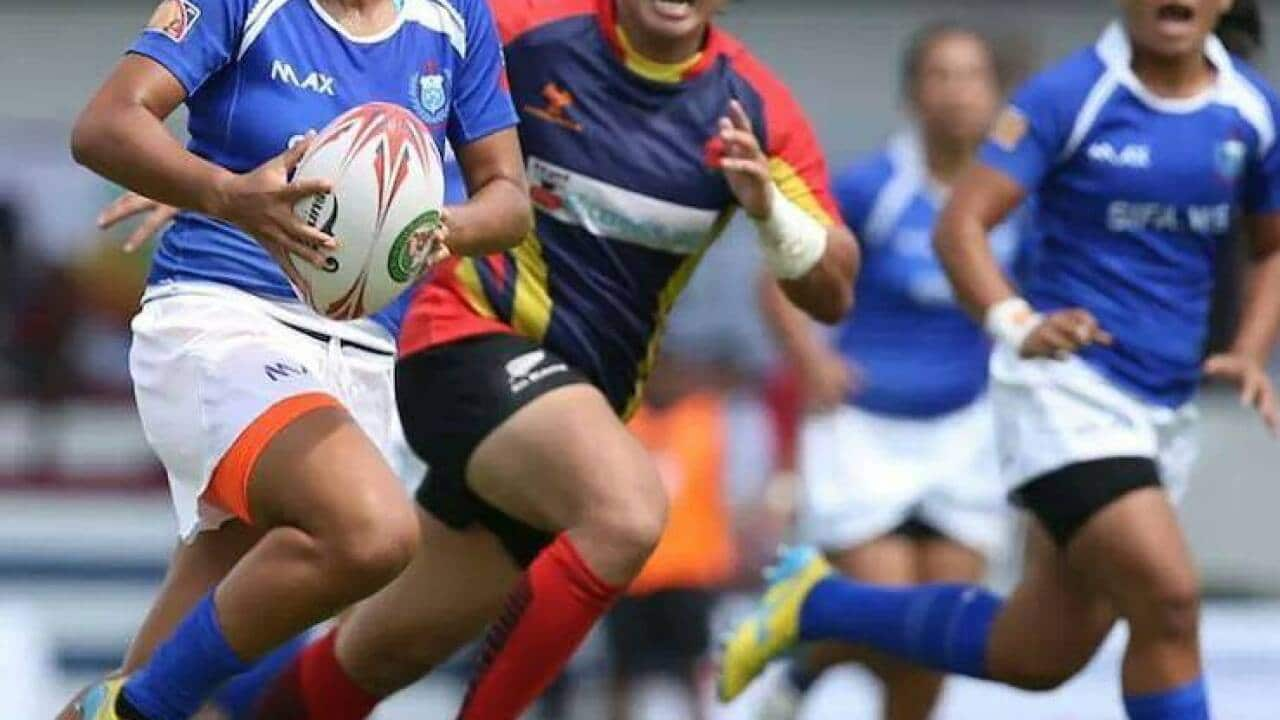For two years, Stephen Thorpe was addicted to the drug ice. His loved ones bore the brunt of it.
"I had a lot of resentments towards my mum. I blamed her a lot for the life that we lived and so there were aggressions that came out," he told SBS News.
"Unconsciously, I was trying to get what I didn't get and so I would hurt my mum in emotional ways, in manipulating ways."
When he suffered a heart attack, caused by his addiction, Stephen was forced to reassess his life.
"I was very lost," he said.
"And I had a lot of anger inside of me, that I wasn't even really connected to."
Thanks to an Indigenous men's behavioural change program, run by , Stephen now recognises where that anger came from, attributing it to the lack of a father figure and lack of identity.
"For me, a lot of my life has been about disconnection from pain and traumas that have gone on, particularly in my childhood," he said.
Run by Indigenous men, for Indigenous men, the Dardi Munwurro 'Strong Spirit' program aims to break the cycle of intergenerational trauma and focus on prevention.
"It's a lot of grief and a lot of loss, of not only mortality, but loss of culture, loss of childhood," Dardi Munwurro director Alan Thorpe said.
Indigenous communities remain our most vulnerable victims.
While will experience violence by someone known to them, Indigenous women and girls are 35 times more likely to be hospitalised than their non-Indigenous counterparts.
The culturally centred 'Strong Spirits' program has already had success and based on recommendations following Victoria's family violence royal commission, it's now received a $3 million funding boost.
Alan says perpetrators or those at risk of offending will participate in a 16-week program run in collaboration with community groups and Victoria Police.
"Getting back to connection and who we are, connection is everything," Alan said.
"When we get back to who we are, that's when violence stops."
Aboriginal Family Violence Prevention and Legal Service CEO Antoinette Braybrook said the program would ensure participants understood their boundaries.
"This program that Dardi Munwurro is rolling out, provides a really safe space for Aboriginal men to share their stories and take personal responsibility for their actions," Ms Braybrook said.
Stephen admits, despite his achievements, he's still a work in progress.
"All of us human beings are all searching for the same thing - love and connection and relationships. But I reckon, I was going about it all the wrong way," he said.
"It's always scary being vulnerable and going on a journey of healing or change, if you want to change, if you want to make change. Have the courage to take the first steps, because they're the hardest."
Suite of Measures
The 'Strong Spirits' program is part of a suite of measures across the country, targeting domestic violence.
The White Ribbon Foundation's has released its latest campaign, '', encouraging men to safely intervene when they witness disrespect, abuse or violence against women.
The New South Wales Domestic Violence Death Review panel has also put together an information booklet for new arrival communities.
Led by NSW State Coroner Michael Barnes, it aims to highlight responsibilities and services.
"First of all, if they're not aware, that domestic violence is a criminal offence, and that it won't be accepted and there are various legal responses," Mr Barnes told SBS.
"But then to make the victims of domestic violence aware of the help they can seek and that will be provided to them."
Domestic Violence Death Review team manager Anna Butler told SBS domestic violence was one of the most serious, and often under-reported, issues facing Australia.
"A one-size-fits-all approach to domestic violence does not work," she said.
"So part of this process is about looking at ways to maximise the potential for intervention."











